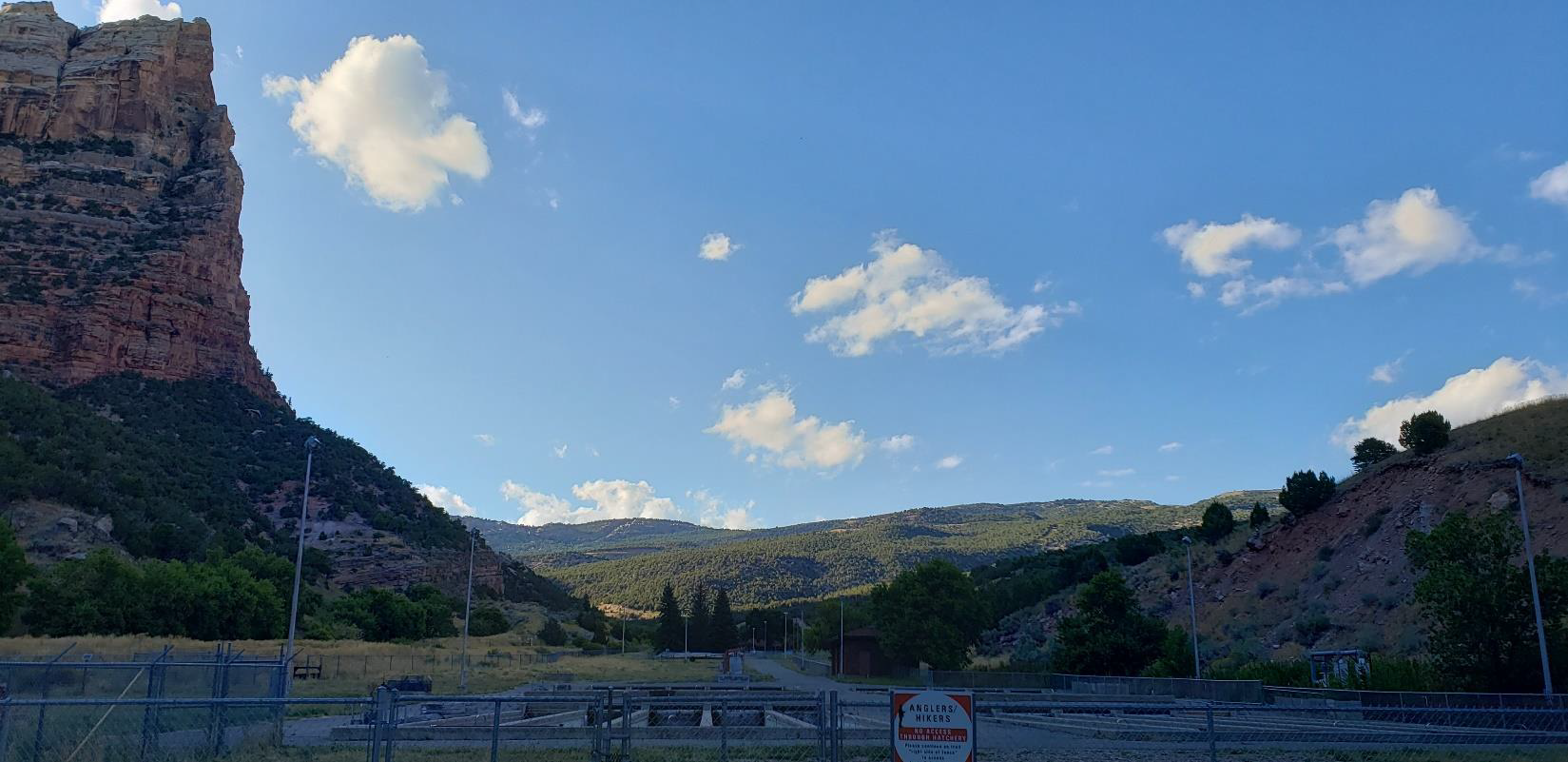
Jones Hole National Fish Hatchery. Photo by Angela Baran-Dagendesh/USFWS.
This summer a call for help went out from Region 6 for the Jones Hole National Fish Hatchery in Vernal, Utah. The station had experienced a couple of retirements and their biological technician stepped up as a biologist at a new station, leaving Jones Hole with only a fish biologist, a term biological technician and seasonal fish technician for an extended period of time while they were waiting for positions to fill. During the summer months, they received help from a project leader out in Region 1 and I was able to fill in for 4 weeks. The detail provided experience at a new station, learning new species, new systems and tested troubleshooting skills! The remote station is located 40 miles, over 1 hour of driving time, from Vernal, Utah, 1 mile north of Dinosaur National Monument and less than a half mile from the Colorado border. The station is complicated not only by the remote location, but also by the maintenance workload they have, and the federal partners surrounding the hatchery, (National Park Service and the Bureau of Land Management). Because of the location, the hatchery is responsible for all of the electrical service once it reaches the outskirts of the station, the transformers, the powerlines and poles. If there are any issues, they first have to figure out if it is with the station services or the electric company, sometimes requiring the repair crews of both the electric company and then a private high voltage company to determine the issue and how to resolve it. In addition to the power responsibilities, they maintain 13 miles of the road leading to the hatchery, guardrails, pavement and snow removal… which in the mountains in the winter can be a full time job for a crew just to open the road back up to get out. The time on station shifted from my comfortable fish and mussel rearing skill set to managing larger issues for contracting and station maintenance, where small issues like a door repair are further complicated by trying to find a company willing to drive an hour to complete a smaller job. The initial thought of being on station for 4 weeks seemed like a long time to be able to accomplish things so a list was developed working with the staff. By the end of the second week, that focus had to shift from adding to the list to prioritizing items that could be completed or set in motion before the end of the detail. It seemed as if I just blinked and the time was done! The whole experience was invaluable and I thoroughly enjoyed the time out west, but it was still good to return home to the staff, fish, mussels and dragonflies at Genoa. By Angela Baran Dagendesh
